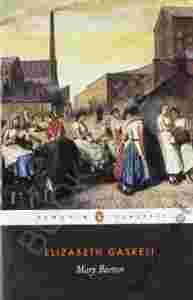|
Elizabeth Gaskell's remarkable first novel, ''Mary
Barton: A Tale of Manchester Life'' portrays a love that
defies the rigid boundaries of class with tragic
consequences. This ''Penguin Classics'' edition is
edited with an introduction and notes by MacDonald Daly.
Mary Barton, the daughter of disillusioned trade
unionist, rejects her working-class lover Jem Wilson in
the hope of marrying Henry Carson, the mill owner's son,
and making a better life for herself and her father. But
when Henry is shot down in the street and Jem becomes
the main suspect, Mary finds herself painfully torn
between the two men. Through Mary's dilemma, and the
moving portrayal of her father, the embittered and
courageous Chartist agitator John Barton, Mary Barton
powerfully dramatizes the class divides of the 'hungry
forties' as personal tragedy. In its social and
political setting, it looks towards Elizabeth Gaskell's
great novels of the industrial revolution, in particular
North and South.Macdonald Daly's introduction discusses
Gaskell's first novel as a pioneering work in the
recognition of the conditions of the poor and working
class; this edition also contains full notes and a
chronology of Gaskell's life. Elizabeth Gaskell
(1810-65) was born in London, but grew up in the north
of England in the village of Knutsford. In 1832 she
married the Reverend William Gaskell and had four
daughters, and one son who died in infancy. Her first
novel, ''Mary Barton'', was published in 1848, winning
the attention of Charles Dickens, and most of her later
work was published in his journals. She was also a
lifelong friend of Charlotte Bronte, whose biography she
wrote. If you enjoyed ''Mary Barton'', you might like
George Eliot's ''The Mill on the Floss'', also available
in ''Penguin Classics''. |
|

